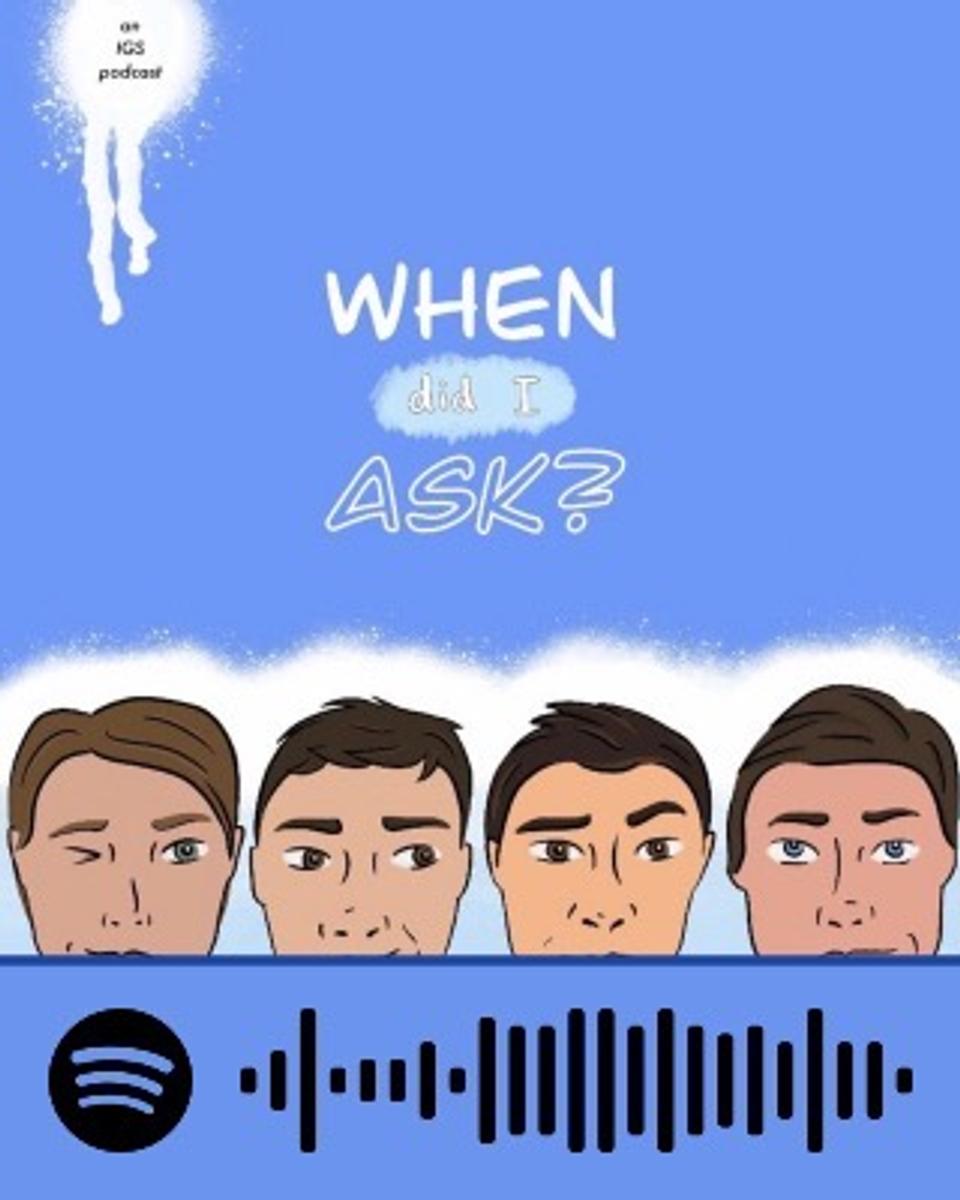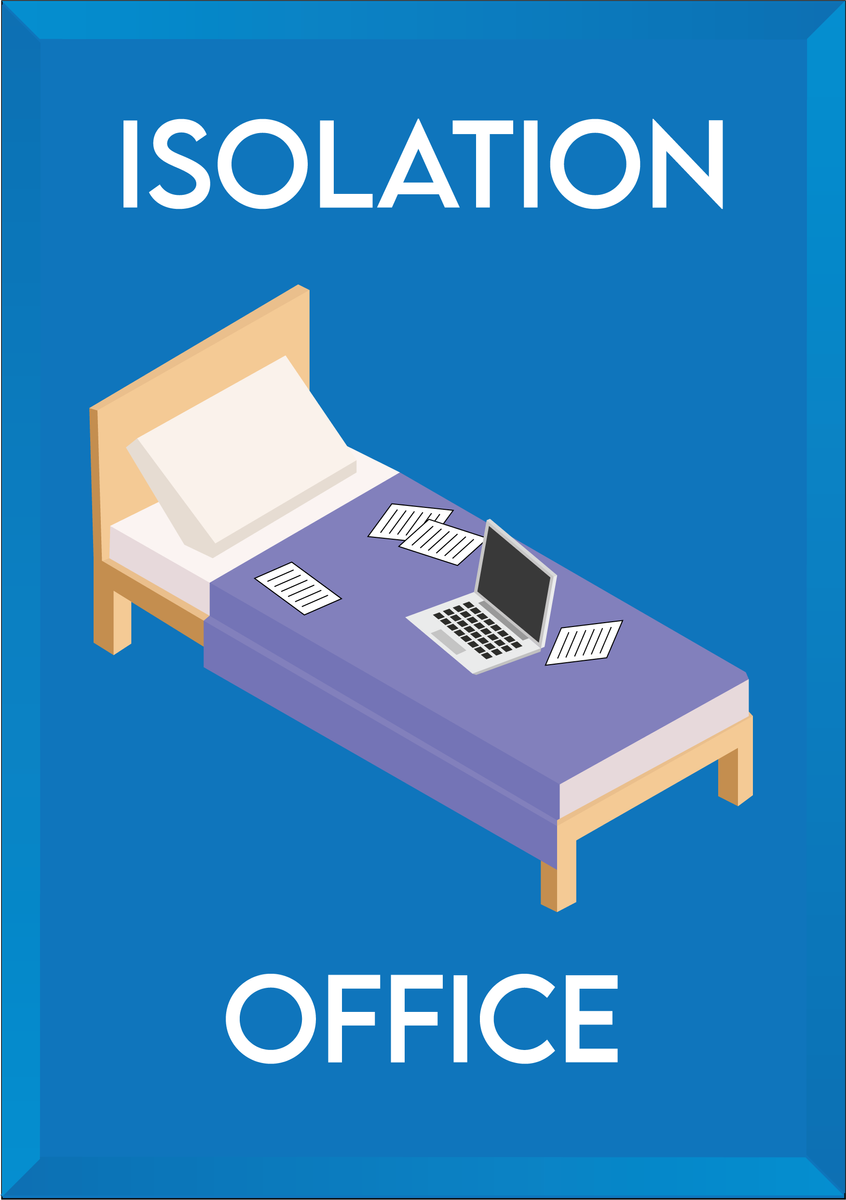Student Projects
Art by Charlotte Key, The Ridgeway Campus, Year 10

Student Projects
Art by Charlotte Key, The Ridgeway Campus, Year 10
By Perrin Theocharides, The Ridgeway Campus, Year 11
The When Did I Ask podcast is your one-stop shop for mentally stimulating conversation about current affairs around Ivanhoe and the world. It’s hosted by year 11 students Alex, Archie, Ben and myself. As of the writing of this, we have released six episodes tackling and discussing issues such as UFOs, nuclear power, North Korea, lockdown protests, and government responses to the crisis. Most of all though, we’re just having a laugh. On top of this, we’ve been lucky to have two guests feature on our podcast, and we hope to get more in future episodes.
The goal of our podcast is to provide our listeners with news on relatively untouched stories (although we can’t exactly avoid coronavirus). We want to provide this information in an understandable and comedic way which offers multiple perspectives on the issues at hand.
So, why are we doing this? Of course, it’s a school project. As IB students, we have to complete a CAS project to pass, and this is what we chose to do. This doesn’t mean that we don’t enjoy it though, and so far we’ve found it a really interesting and fun experience that’s tested us to try something new.
If you’re interested, you can find our podcast by searching When Did I Ask on Spotify or scan the image below with the camera icon in the Spotify search bar! New episodes come out Tuesdays (normally).




Design by Mitchell Sandford, The Ridgeway Campus, Year 11
Below is an exclusive interview with The Ridgeway Campus Year 10 student and author, Angus Duske. We were very intrigued after he finished his 6th book during Camp Nano Writing Month. Eager to share his experiences, here’s what he replied.
What is Camp Nano Writing month about?
Nanowrimo is a non-for-profit that aids young writers around the world, but donating is not mandatory, Camp Nano Writing Month, otherwise known as Camp Nanowrimo, is a competition run twice in April and July as a means of preparation for Nanowrimo (National Novel Writing Month) in November. The objective is to write a novel in a month, for Nanowrimo in November the word count is 50,000 words, but for Camp Nanowrimo, you’re free to set your word count; I choose 50,000.
Where do you find the inspiration for your writing?
Inspiration for my writing comes from all over the place. Some of my more recent works have come from thoughts I’ve had from watching or reading the news, listening to podcasts, anything really. I have a list on my laptop that features some really good plots I hope to write soon, two of which have come from random thoughts my maths teacher has suggested in a conversation with me! Currently, a lot of my work including my latest, Day of Disaster, takes inspiration from my golfing escapades with my friends. I have a list of short stories to write that is constantly growing although stagnated with the current pandemic.
Can you summarise/give a synopsis for your most recent book?
My most recent book, Day of Disaster, as I mentioned earlier is inspired from a golf tournament that my friends and I played in. We thought that some of the day's events would fit well into a novel. Our protagonist started well but faced disaster after disaster, ruining our rounds. It ultimately ended in, you guessed, disaster, that happened to me (yes I am a character in my own book) over the course of this day.
How many novels have you written?
In terms of novels I have written 6, of which two are being edited, one is being finished, and the other 3 I want to rewrite with more attention to plot and characterisation. Outside of novels I used to write a lot in primary school and have around 30 stories, which have word counts varying between 2000 to 12000.
Do you write strictly fiction or have you done other genres?
Most of my stories fall under the branch of fiction, mostly adventure, mixed through futuristic, present-day or historical settings. My current works on golf would best be described as some kind of biography focusing only on the funny golf-related bits, although I often think I’m a bit young to be writing a biography! I must confess I have dabbled into poetry, I have a deep admiration for poets because their art is difficult but I much prefer writing.
How long have you been writing for?
That’s a tough question, looking back I can remember writing what can only be described as elaborate recounts of my weekend in prep and grade one, with some huge reports along the way. In year two, I took my first step into creative writing. I struggled with writer's block for a week before settling on my plot and it took me two months to draft my monstrous story of 3000 words by hand! It is my belief that this is where the spark was lit. I continued writing through the remainder of my time at Primary School, both creatively and academically, often blowing teachers away with the sheer detail of my work. Then in 2017, I was finally old enough to qualify for Nanowrimo and participated in their July competition writing 28000 words out of 30000. Two months later, I would try again and this time getting to 45000 from 50000. Then in 2018, I started, what is to this day, the longest writing project I’ve ever embarked on. The Red Planet was the first of novels that attracted the attention of my peers. It’s gone through three rewrites with the longest totalling 120,000 words. The Red Planet was the first work I finished Nanowrimo with and have finished two others, The White Land and Day of Disaster.
Has being in social isolation allowed you to write more?
Social isolation, I am almost one hundred per cent sure, has allowed me to write more. Usually, my school holidays would involve at least 14 rounds of golf, taking up a significant space of time leaving me little time to write. This allowed me to bunker down and write. This month I achieved some of my highest word counts per day, around 6000 words, for three days straight while juggling school work as well. During the term, I would find myself working late into the night but with the added time of online school and lack of after school commitments I had ample time to work during the day.
And finally, do you have any advice for keen writers such as yourself?
Writing is one of those skills that you should exploit. It doesn’t matter whether or not you want to get published or just write because you’re bored, something many of you may be thinking now, it doesn’t matter. Back yourself, because, in the end, you don’t have to care about what other people say. Find your supporter base. Whether that’s a group of friends or your social media followers let them know what you're doing because support can give you that drive to finish. Of course, writing is easiest when your writing about a passion. When writing the Red Planet, I had an obsession with Mars and space travel, hence it is a novel about the first manned mission to Mars. It was the same thing with the White Land, I was interested in Antarctic Research Stations, so a novel about a race across Antarctica happened. Finally, writing comes with all sorts of benefits, and don’t forget that. I have taught myself to touch-type and many other skills just by writing often and that helps in assessments!
Thanks Angus!